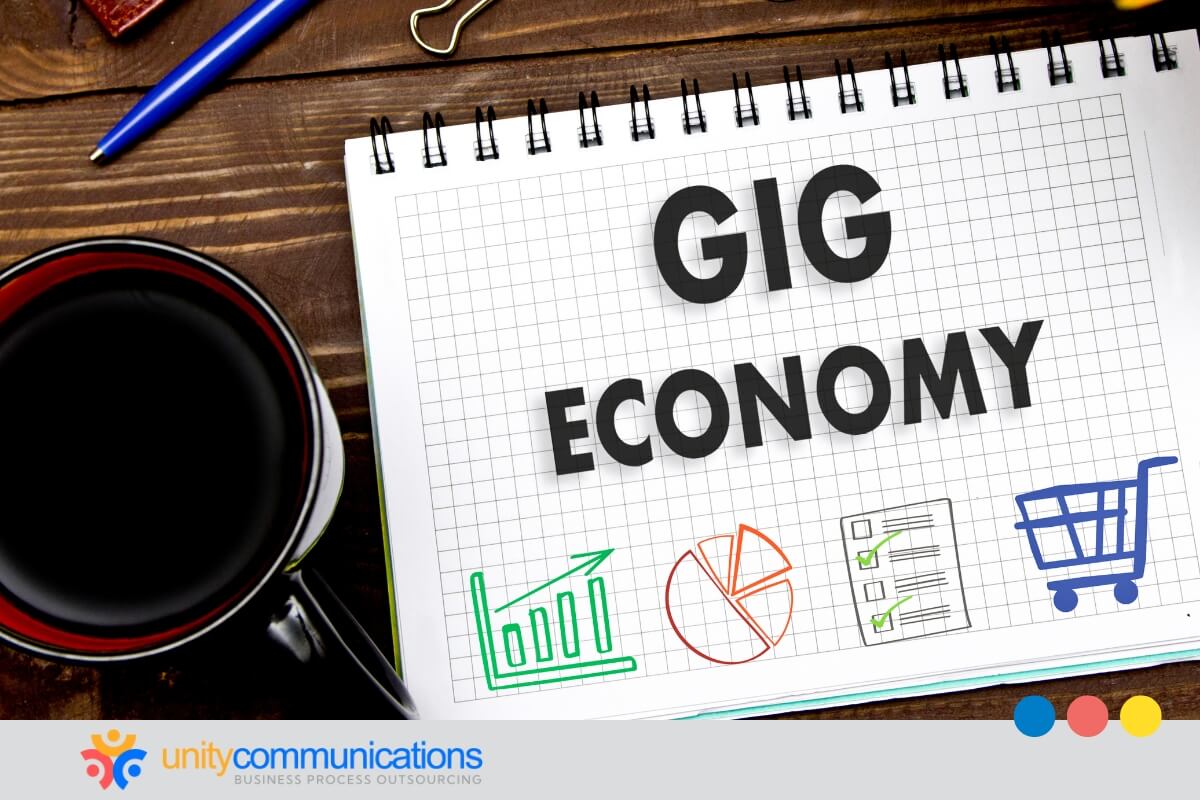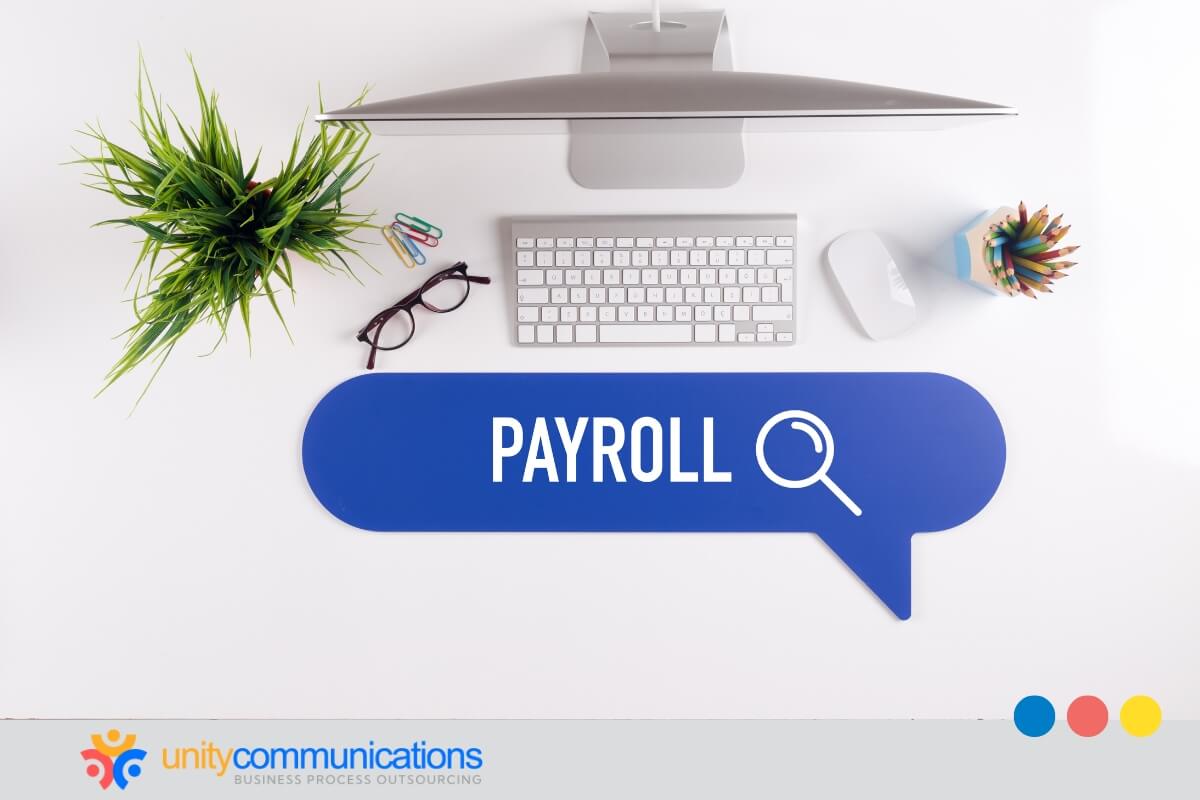Table of Contents
The international labor market is shifting dramatically, with the gig economy at its forefront. Gig arrangements offer more flexibility and better access to a global talent pool than traditional employment practices, allowing businesses to scale their workforce as quickly as needed.
However, gig work presents many challenges in hiring, compliance, and employee management. Thus, businesses use employer of record (EOR) services to manage an international workforce effectively.
If you want to engage these professionals but are still determining how you can lead a globally dispersed team, this article is for you. It explores the ways EOR services can help navigate the gig economy.
Understanding the rise of the gig economy

The health and economic implications of the coronavirus pandemic brought a surge in gig economy workers and clients. According to a study submitted to the National Bureau of Economic Research, the number of freelancers rose to 3.1 million between 2020 and 2021.
What exactly is gig work? This dynamic sector thrives on project-based employment arrangements, changing how businesses operate and individuals view their careers.
Unlike traditional employee-employer relationships, the core characteristics of the gig economy include the following:
- Flexible work schedules and arrangements give gig workers control when, where, and how much they work daily.
- Short-term or project-based contracts allow businesses to hire specialized expertise for a specific task and duration.
- Independent work means contractors are responsible for their taxes, benefits, and finances, reducing the burden on their employers.
- Digital platforms act as intermediaries, facilitating communication, task assignment, and payment processing.
- Varied incomes depend on gig availability, productivity, hours worked, skillsets, and specializations.
Key drivers of the gig economy
Besides the pandemic, several other factors fueled this sector’s growth, including:
- Technological advancements. Online platforms connect businesses with a global talent pool, enabling seamless collaboration and project management. Mobile apps further empower gig workers by streamlining job search and task fulfillment.
- Changing workforce preferences. Today’s workforce, particularly millennials and Gen Z, prioritizes flexibility and work-life balance. The gig economy caters to this desire, allowing them to control their schedules, projects, and income streams.
- Shifting business needs. Companies are increasingly seeking agility and adaptability, which gig work offers. They can access specialized skills when needed, reducing costs associated with full-time employees.
The impact of EOR services on gig work culture

Managing a distributed workforce of independent contractors can be challenging for businesses. They must deal with the legal risks of misclassifying workers, ensure quality work without micromanagement, and foster collaboration despite a scattered team. Retention is also complicated since gig workers are free to take their skills elsewhere.
A trustworthy EOR partner helps companies navigate and overcome the complexities of the gig economy.
To better understand EOR’s role in helping businesses in the gig economy, let’s first discuss its definition. Similar to information technology (IT) support outsourcing, this practice involves subcontracting non-core processes, especially human resource (HR) tasks such as:
- Talent acquisition
- Onboarding and offboarding
- Payroll processing
- Benefits administration
- Regulatory compliance
EOR offers many benefits, including relieving companies of time-consuming administrative tasks, making the practice more widespread. The global EOR market’s value reached almost $4.3 billion in 2023 and could grow by 6.8% by 2030.
The service is particularly beneficial in managing gig workers in the following ways:
1. Facilitating global hiring
Labor and tax regulations governing the gig economy vary across countries. Keeping up with these ever-changing laws is challenging, while noncompliance can lead to hefty fines, lawsuits, and reputational damage.
An EOR has established subsidiaries and partners in its operating countries, allowing it to gain expertise in local employment regulations. These include payroll taxes, social security contributions, and unemployment insurance.
Since the EOR provider assumes the employer’s responsibilities, setting up legal agencies in countries where you want to hire gig economy workers is unnecessary. An EOR’s knowledge and resources can help you comply with relevant laws and reduce the risk of misclassifying independent contractors.
2. Streamlining payroll
Gig workers often have unpredictable work schedules, making it challenging to track work hours and ensure accurate pay and tax deductions.
An EOR manages every aspect of global payroll processing for timely and accurate payments and legal compliance. These processes include, but are not limited to, the following:
- Payroll calculations
- Currency conversions
- Fund transfers
- Tax withholding and remittance
Additionally, reliable EOR companies build online portals for gig workers to access paystubs, track earnings, and view tax deductions. This transparency fosters trust and allows freelancers to manage their finances effectively.
3. Enhancing worker protections
Traditionally, the gig economy lacked the benefits and protection offered to full-time employees. EOR services bridge the gap through the following:
- Enhanced benefits offerings. Some EOR service providers now offer tailored benefits usually enjoyed by full-time workers. These include health and disability insurance and paid time off options that suit individual needs and budgets.
- Portable benefits. EOR firms are exploring portable benefits to provide gig economy workers access to non-wage compensation for better stability and safety. An example is allowing employer contributions to be deposited in a fund that workers can use for retirement or healthcare. Workers carry these benefits to every job without disruption.
- Improved worker classification. Misclassifying independent contractors severely restricts their access to essential benefits. The EOR properly categorizes them based on local regulations to make them eligible for pension and unemployment insurance. These benefits can be safety nets for gig workers during downtime.
EOR services help shape the industry’s future by creating a more secure and attractive environment for self-employed individuals.
4. Simplifying administrative processes
Managing a large and dispersed gig workforce is challenging. Its decentralized nature makes paperwork and progress tracking daunting, risking the deterioration of communication and quality control.
An EOR can take the administrative burden off your plate through the following:
- Smooth onboarding and offboarding. The EOR collects and verifies worker information and completes tax forms and background checks. It scales the onboarding and offboarding processes as your business grows, minimizing delays and maximizing efficiency.
- Transparent performance checks and communication. The EOR provides valuable tools to track the progress of gig economy workers. It offers data analytics to give insight into their performance and secure online platforms to facilitate communication.
- Integrated technology. Modern EOR platforms integrate seamlessly with tools such as payroll and project management systems. They automate data entry services, reduce errors, and ensure smooth data flow across all applications.
Best practices for leveraging EOR services for gig work

Simplifying gig workforce management through EOR services involves adequate preparation and maintenance. If you are considering partnering with a provider, here are three critical steps to help you get started and position yourself for success:
- Find your ideal partner. Pick an EOR with proven expertise in navigating the gig economy and its regulations across your target locations. If you plan to hire worldwide, choose a provider with a solid global network. It simplifies international employment law compliance, talent acquisition in new markets, and hiring risk mitigation.
- Maintain open communication. Once you’ve signed a contract, communicate clearly with your EOR throughout the transition process and partnership. Discuss project details, worker classifications, and changes in regulations.
- Conduct regular monitoring. Review and assess your EOR’s performance to ensure it meets your needs. Evaluate metrics such as payroll accuracy, worker satisfaction, and compliance. You can accomplish this by monitoring error and turnover rates, conducting employee surveys, and performing regular internal audits.
By following these best practices, you can leverage EOR services effectively for a smooth and compliant gig workforce management experience.
The bottom line
EOR services are essential for navigating the complexities of the gig economy and driving sustainable growth. Partnering with a provider allows you to maximize gig work’s flexibility and talent pool without worrying about compliance and administrative burdens.
An EOR helps facilitate global hiring, streamlines dispersed payroll, enhances worker protection, and simplifies administrative work.
Let’s connect if you want to learn more about EOR services and how they can help you in the gig economy.




